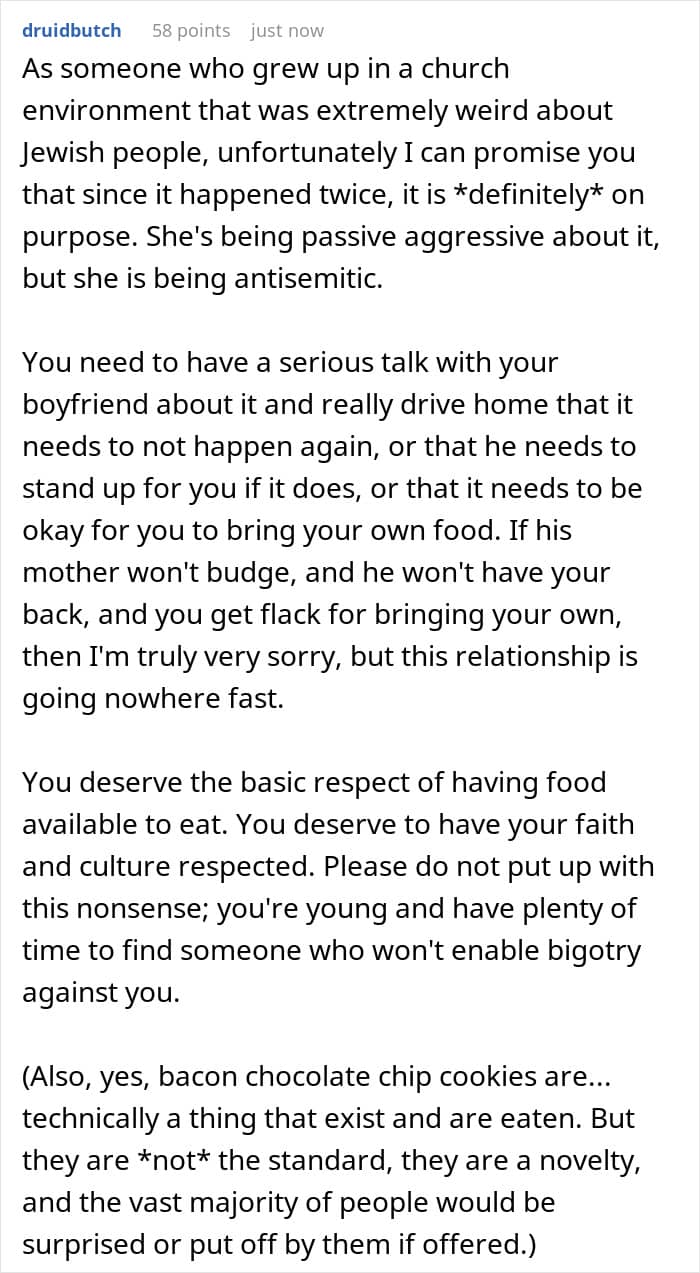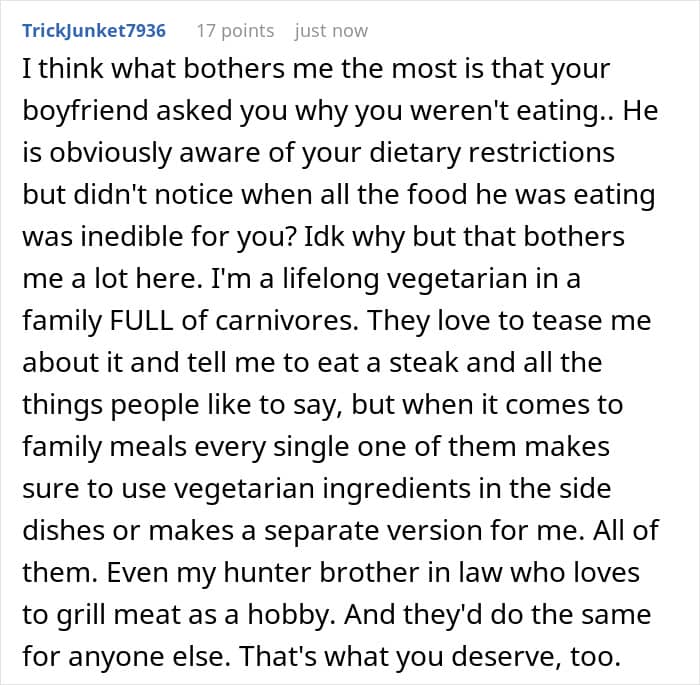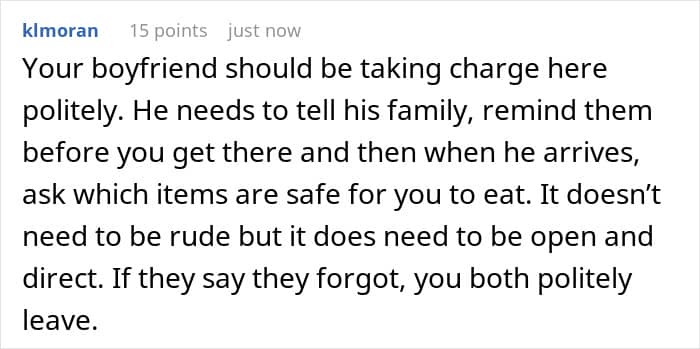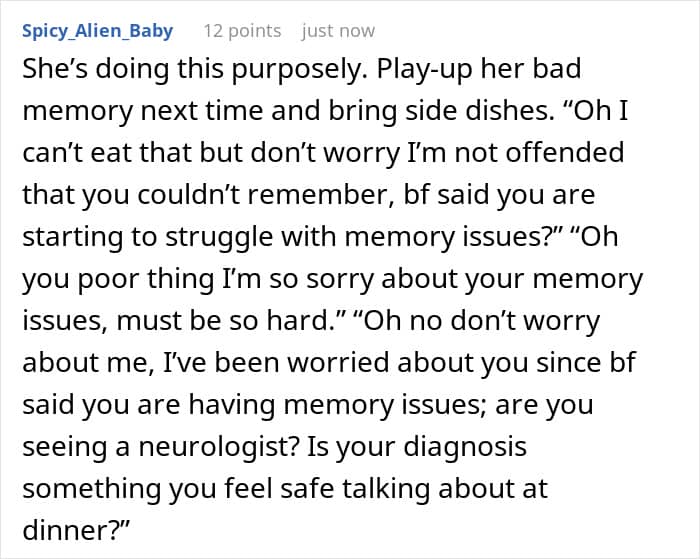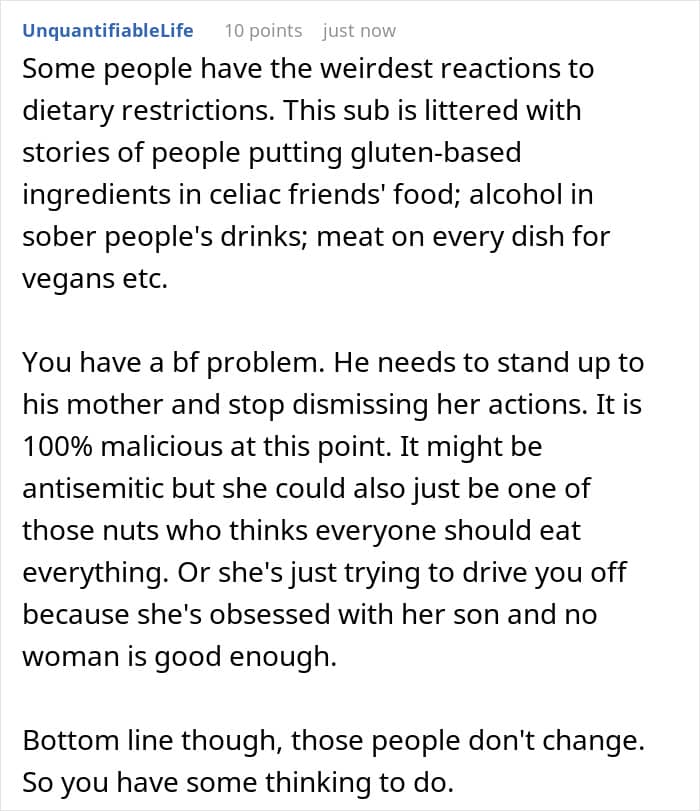Navigating dietary restrictions when meeting your partner’s family can be tricky. That’s especially true when you come from a different religion. For Jews, pork can become a test of patience: with 40% of American Jews abstaining from it, family dinners start to feel more like battlegrounds than cosy time with family.
This Jewish woman, however, started wondering if her boyfriend’s family was putting pork into meals on purpose. After having to suffer through several get-togethers where she was unable to eat anything, chocolate chip cookies with bacon from her potential mother-in-law were the last straw. So, she turned to the internet for some advice.
RELATED:A Jewish woman has had it with her BF’s family serving her bacon every time she visits

When the mom offered her chocolate chip cookies with bacon, she started wondering whether they’re doing it on purpose



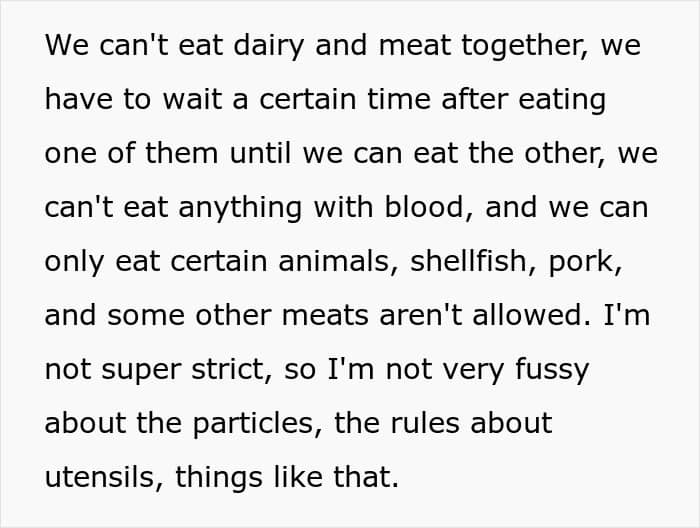












Those with dietary restrictions might find it stressful to participate in family gatherings
Diet can be a contentious topic, especially when meeting your significant other’s family. Not eating the meal they’ve prepared for you can seem rude and inconsiderate, but nowadays, many people have a good reason to say, “No, thank you.”
According to Statista, roughly four in 10 Americans follow at least one nutritional rule. Be it a vegan, gluten-, lactose-free, or low-carb diet, almost half of Americans might not be able to eat something on the family feast table.
A 2022 study about people with celiac disease found an interesting side effect that their diets had on their relationships. 70% of the respondents claimed they were hesitant to date, saying it was hard to find someone who would be compassionate and understanding.
Similarly, other people who have some sort of dietary restriction clash with their families during the holidays, shared meals, and even when eating out together.
MSU assistant professor of philosophy Megan Dean, who studies the ethics of eating, says that it is stressful to participate in family gatherings when you are bumping up against expectations. “Some people just don’t go to shared meals anymore because this process is so exhausting for them emotionally and socially,” she explains.

Image credits: freepik (not the actual image)
Eating together is not just about the food, but about fostering relationships, too
It’s okay to not attend family dinners if you don’t like spending time with that family. Still, these dinners are not only about the food that is on the table. As Dean explains, eating together does a lot more for us:
It builds and strengthens family relationships;It makes us feel closer to the community;It allows us to partake in shared religious or cultural identities;It’s a chance to take care of others by providing them nourishment.
One of the most important things about having dietary restrictions and eating at somebody else’s house is letting them know well in advance what kinds of ingredients you can’t tolerate. As the OP did that already and it didn’t work, what other solutions are there?
As parenting coach Beverley Cathcart-Ross explains, it’s about setting the tone in that family dynamic. “Start behaving more self-respectfully within your family dynamic and slowly your family dynamic will change. Because when one person changes, that person’s relationship with all the other family members changes.”
There’s also nothing wrong with setting a boundary and refusing to visit until the family members start taking your dietary restrictions seriously. Cathcart-Ross calls this “dual respect”. “Mutual respect”, according to her, is often one-sided.
“The flaw in mutual respect is you have no control over whether the other person will respect you back. If you’re trying to treat your relatives with respect but they are not respecting your condition, it’s time for a change in approach.”
That’s why some people choose to stop going to family gatherings altogether. They feel like they’re not being seen or heard, and sometimes, they’re flat-out being ignored. Much like the woman in this story, they just grow frustrated over time.
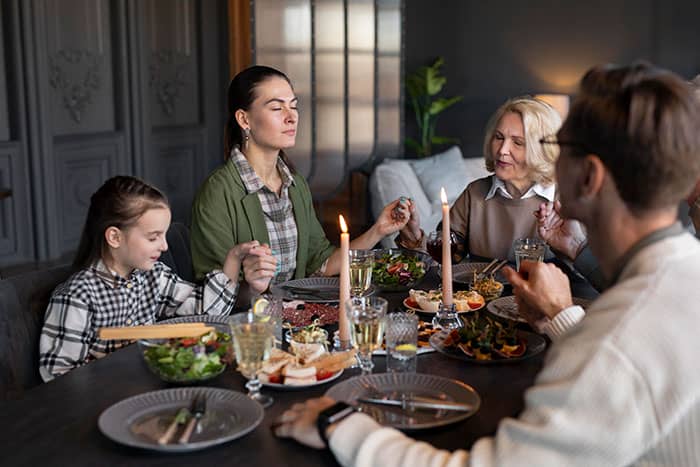
Image credits: freepik (not the actual image)
In the comments, the author mentioned how the mother makes her uncomfortable and makes rude comments about her appearance

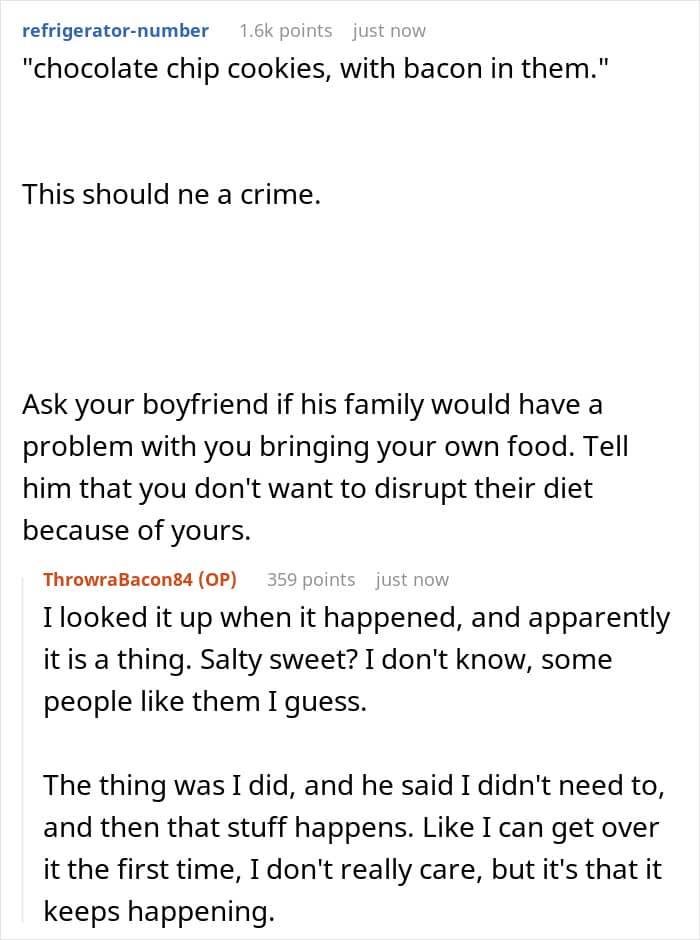




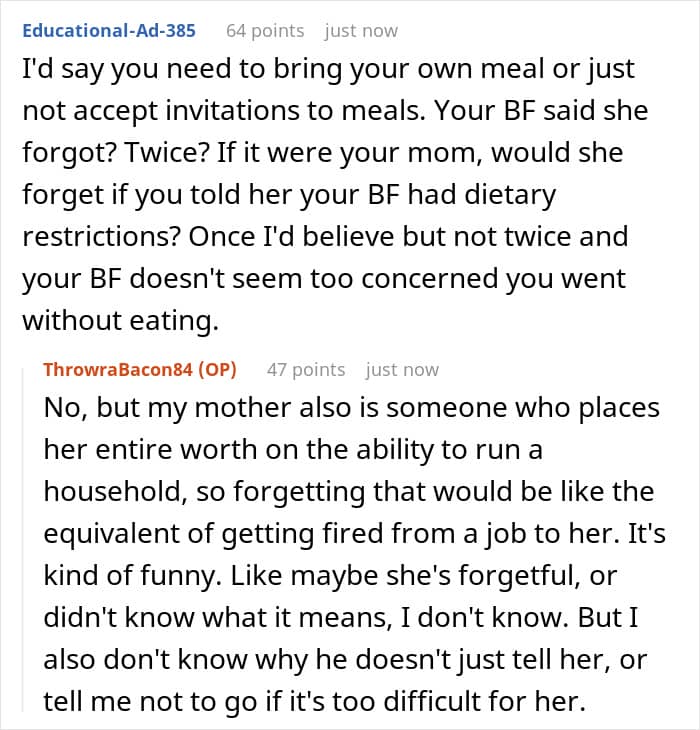




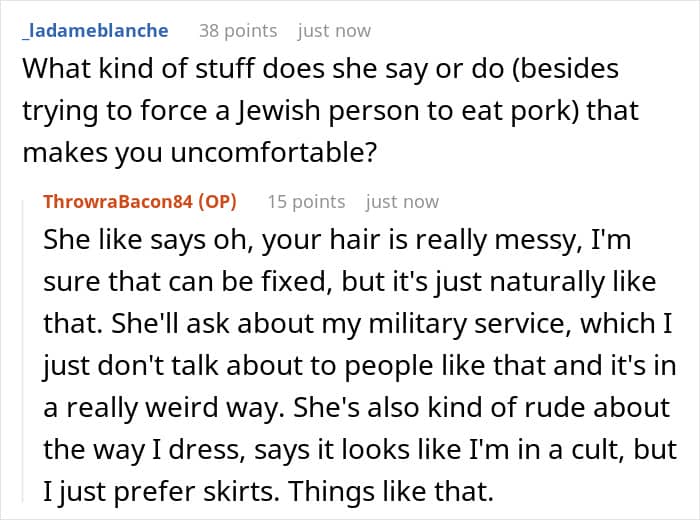
Many commenters felt it was the boyfriend’s responsibility to stand up for his girlfriend







